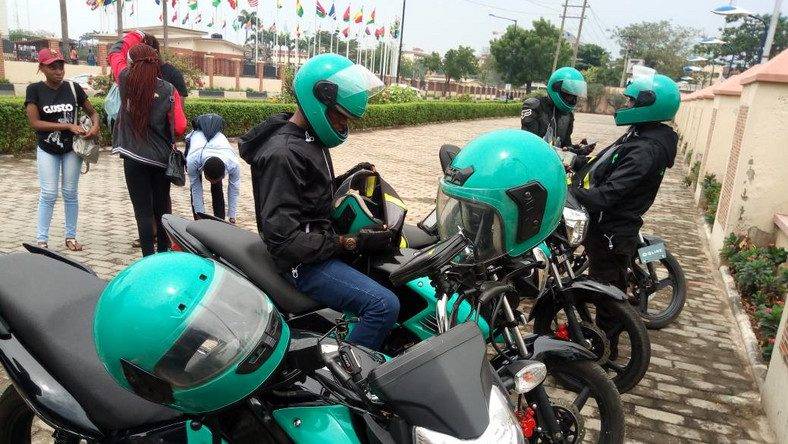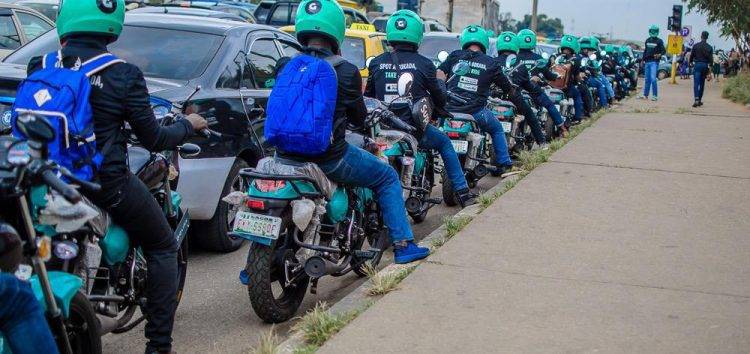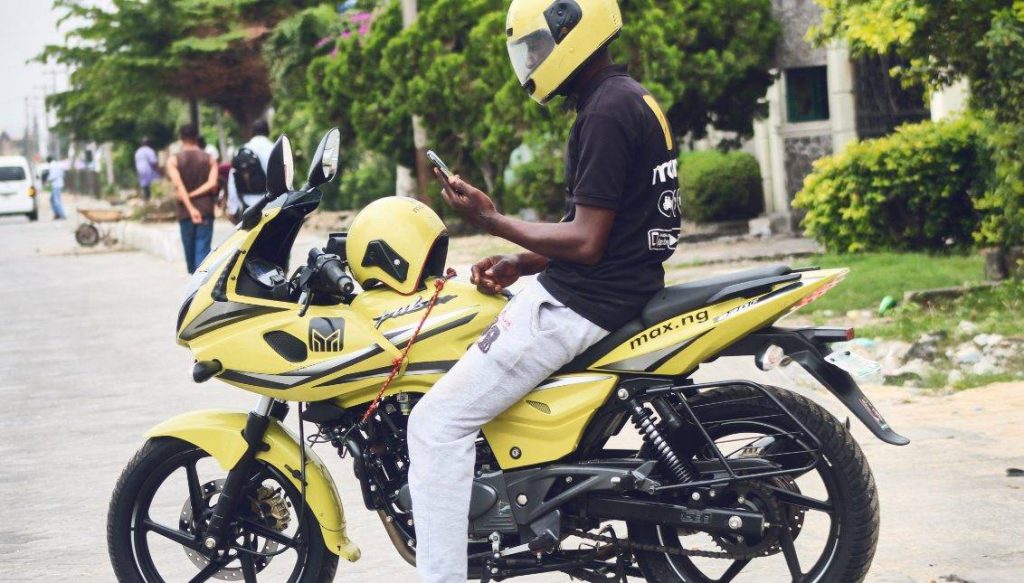New Threat? GoKada, Max.ng And ORide Thought Of Everything – Everything Except ‘Agberos’ On Lagos Streets

Bike-hailing startups are doing the most to change the face of on-demand bike-hailing in Nigeria. But their business may suffer because of Agberos on Lagos Streets.
If you have been keeping up with the most recent happenings in the Nigerian on-demand bike-hailing segment, then you might get the feeling that the industry is in the middle of certain disruption.
In that last few months, it’s been about funding rounds after funding rounds for bike-hailing startups in Nigeria and various industry players jostling for pole position by significantly expanding/improving operations in terms of personnel, technology, resources, and reach (some of these ride-hailing companies have even gone beyond terrestrial and are now literally testing the waters).
And then, there was the crazy price war of June which saw industry newcomer, ORide, giving out rides to customers to any part of Lagos for next to nothing, among other outrageous bonuses.

As the likes of GoKada, Max.ng, and ORide continue to do battle triple-threat-style, and the proposed arrival of Uganda’s bike-hailing champion, SafeBoda, potentially transforming this battle into a fatal-four-way, the biggest winners have unarguably been the users of these platforms.
Bike-hailing startups in Nigeria are currently trying to outpace and outdo one another in this still largely untapped market and a by-product of these efforts is significantly-improved service borne out of these companies doing the most to get things right. And they have gotten so many things right.
But now, there’s a new problem that could take these bike-hailing companies out of business if left unchecked. And it doesn’t help that they didn’t see it coming, though they probably should have.
Just yesterday, word got out of several ORide, Max.ng and GoKada riders getting stopped and blocked by a band of street urchins/street thugs (better known as “Agberos”) in the Ojuelegeba area of Lagos. These Agberos demanded the riders to pay as much as NGN 500.00 for no just cause or be made to rue the consequences.
Lagos is definitely not ready for business.
Agberos right now stopping oride, gokada and maxng bikes in Ojuelegba.
They want the riders to pay N500 for a N100 ticketMy trip has been canceled pic.twitter.com/GhuEvENilc
— WORLDFAMOUS olamide (@olamideyelo) July 17, 2019
For those who do not know, the Agberos are the unofficial tax force on many popular Nigerian motor parks, junctions, intersections, overhead bridges, markets, roads, and streets. And that’s just to put it nicely. In actual terms, they are a band of street-hardened, weed-puffing, liquor-gulping, criminally-insane bullies who make a living (if we can even call it that) by intimidating people and forcing them to part with their money on the grounds that they are doing business on their grounds.
They usually operate in groups and in recent times, they have added a method to their madness; forming interest groups and boldly perpetuating their evil, sometimes in full view of law enforcement officials who would rather not try to stop them.
These Agberos are everywhere and if you are a commercial transporter who is too chicken to stand up to them, you will keep handing out money at every junction and close business for the day with too small an amount to even buy a litre of fuel for your vehicle. That’s the menace that may deal a coup de grace to the business of these bike-hailing startups if nothing is done.
Actually, in many Nigerian transport hubs, there are ‘legal’ tax forces which usually demand a token of NGN 100.00 from commercial transporters. Even before these tech-enabled bike-hailing startups joined the fray, commercial motorcyclists have always had unions that mandate riders to pay a token for a daily ticket — it’s like a pass that permits them to operate.
The problem with this is having to pay that token several times in the same day when many different groups of Agberos masquerading as representatives of the union stop riders at different times and demand the “Roja” they think they are entitled to.
And with so many groups of weapon-wielding thugs occupying basically everywhere, this happens a lot. Resisting them goes either one of two ways; you get away with, or things really get out of hand and you end up with a badly damaged vehicle and/or bodily harm.
This is the new problem bike-hailing startups may be facing now. Because they were flying under the radar initially, they were largely ignored by the urchins. But expansion and competition have caused their numbers to grow and that has gotten the attention of the Agberos who actually see those riders as soft targets because of the gentrified manner of their operations.
That’s probably why the Agberos were demanding NGN 500.00 for a ticket of NGN 100.00; a ticket the bike-hailing riders shouldn’t have to pay for in the first place given that the companies they represent already pay significant taxes to both the state and federal government — something that can’t be said about traditional commercial motorcyclists.

Well, this is the current troubling scenario and if history is anything to go by, the problem could be expected to get even worse. Agberos run many Lagos streets and one thing they can’t help doing is throwing their weight about.
They are very territorial and their biggest stock in trade is bending people to their will with intimidation and threats, and forcing them to continuously pay for doing business in their territory.
As GoKada, Max.ng, and ORide continue to enlist more riders and expand their operations, it is only natural that they will become a lot more noticeable — and the Ageberos do love a glowing helmet. If nothing is done to stop these ‘unofficial owners of the streets,’ it won’t be long before news of far uglier encounters than yesterday’s begin to surface.
Nigeria is already a difficult place to do business as it is, and perhaps the government should do more to protect the interests of these companies who not only remit significant funds to its coffers but also provides employment opportunities to the country’s teeming youth population. As things stand, it’s one more thing to worry about for the bike-hailing companies.